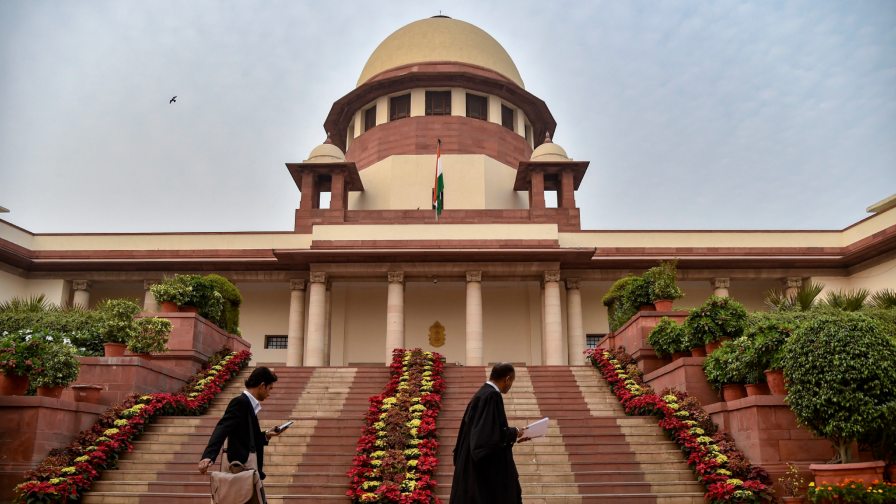The Adani-Hindenburg controversy has once again reached the Supreme Court after a fresh application was moved seeking a direction to the Securities and Exchange Board of India (SEBI) to complete the pending investigations against the Adani group of companies. The plea comes in the wake of the recent report by the short seller alleging 'conflict of interest' against Sebi chairperson Madhabi Puri Buch.
The application has been moved by one Vishal Tiwari, who had earlier filed a plea seeking CBI probe into the allegations made by Hindenburg report against the Adani group. Interestingly, Tiwari has also filed a complaint of Supreme Court Registrar's alleged refusal to register the case.
In June this year, Tiwari filed an application in his earlier petition, seeking a direction to SEBI to complete the investigations as per the time-line mentioned in the January judgment. In the same plea filed in June, Tiwari also sought directions to Centre and the Securities and Exchange Board of India (SEBI) to provide a detailed report on the June 4 market crash that followed the Lok Sabha Election results.
However, Supreme Court Registrar Judicial (Listing) passed an order refusing to receive the application, stating that the top court had not passed any categorical direction to complete the investigation within three months, and had used the term "preferably" in the verdict. The Registrar further stated that a review petition filed against the January verdict in the Adani case was also dismissed by top court.
Tiwari has now filed another application which mentions the the latest Hindenburg report, which alleged that the SEBI Chairperson and her husband had investments in offshore funds which are allegedly linked to Adani Group. He has submitted that the latest report has created an "atmosphere of doubt", and thuse SEBI should conclude the pending investigations.
In January, the Indian markets hit a record low after the Hindenburg Report and certain newspaper reports alleged that some Foreign Portfolio Investments in Adani group stocks in the Indian stock market are owned by shell companies based outside India, which have close connections with the Adani group. The short-seller report alleged that such investments in Adani stocks allow the Adani group to maintain financial health and artificially boost the value of stocks in the market, in violation of Indian law.
The Supreme Court verdict in January 2024, handed out by a bench of Chief Justice DY Chandrachud, and Justices JB Pardiwala and Manoj Misra, declined to order an independent probe into the allegations raised in a report by US-based short-selling firm Hindenburg Research.
However, the top court ordered Centre and SEBI shall constructively consider the suggestions of the Expert Committee in its report.
"These may be treated as a non-exhaustive list of recommendations and the Government of India and SEBI will peruse the report of the Expert Committee and take any further actions as are necessary to strengthen the regulatory framework, protect investors and ensure the orderly functioning of the securities market; and...SEBI and the investigative agencies of the Union Government shall probe into whether the loss suffered by Indian investors due to the conduct of Hindenburg Research and any other entities in taking short positions involved any infraction of the law and if so, suitable action shall be taken," the verdict read.


